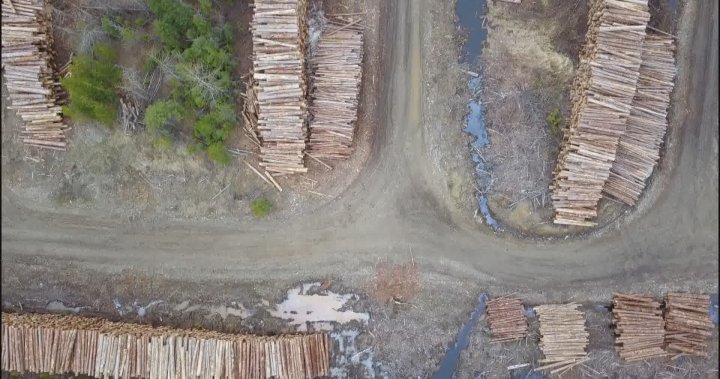A recent BBC documentary shed light on the wood pellet industry in British Columbia (B.C.), sparking international concern about the province’s forestry practices. The documentary focused on the environmental issues surrounding the use of wood pellets for power in the U.K., sourced primarily from B.C.’s interior. It was revealed that these practices were allegedly in violation of Canadian environmental regulations 189 times. Stand.earth, an international organization dedicated to holding corporations and governments accountable for their actions, emphasized the significance of this issue on a global scale, particularly in the United Kingdom.
The Drax Power Station in England, which relies on wood pellets for its operations, has been at the center of the controversy. Numerous emissions violations were discovered at Drax’s plants in B.C., with levels exceeding legal limits in some cases. Conservationists in both the U.K. and B.C. expressed concerns about the potential use of whole trees for fuel pellets by Drax, contradicting the company’s claims of being environmentally friendly and sustainable. Stand.earth’s senior forest campaigner, Tegan Hansen, highlighted the alarming practices observed at Drax’s facilities, where whole logs were seen being processed into pellets despite Drax’s insistence on using sawmill residue as their primary source.
Despite the growing scrutiny and accusations, B.C. Forests Minister Bruce Ralston defended the province’s forestry practices, stating that old growth forests were not being converted into pellets. Ralston also downplayed the emissions issues, describing them as minor and emphasizing Drax’s efforts to improve environmental standards at their acquired plants in B.C. The discrepancies between the claims made by Drax and the observations made by environmental activists raise questions about the transparency and accountability of the wood pellet industry in B.C., particularly in relation to its impact on the environment and local communities.
The absence of the BBC documentary’s broadcast in Canada raised concerns about the lack of awareness and public discourse on the issue within the country. The global significance of B.C.’s forestry practices, particularly in relation to the wood pellet industry, underscores the need for greater transparency, accountability, and environmental stewardship. As international scrutiny intensifies, there is a growing urgency for both the government and industry stakeholders to address the environmental concerns raised by organizations like Stand.earth and other advocates for sustainable forestry practices.
The controversy surrounding B.C.’s wood pellet industry highlights the complexities and challenges of balancing economic interests with environmental conservation efforts. The reliance on wood pellets for energy production, particularly in countries like the U.K., underscores the interconnectedness of global supply chains and the impacts of unsustainable practices on a global scale. Moving forward, there is a pressing need for increased regulatory oversight, transparency, and cooperation between governments, industry, and environmental organizations to ensure the long-term sustainability of forestry practices and the preservation of natural ecosystems.
In conclusion, the international scrutiny of B.C.’s forestry practices, as highlighted in the BBC documentary, serves as a wake-up call for industry stakeholders, policymakers, and the public to reevaluate the environmental impact of the wood pellet industry. The revelations of emissions violations, concerns about the sourcing of feedstock, and the potential impact on old growth forests underscore the urgent need for comprehensive reforms and stricter regulations to mitigate environmental harm. As debates continue and calls for accountability grow louder, the future of B.C.’s forestry industry will depend on its ability to reconcile economic interests with environmental sustainability and uphold its commitment to responsible and ethical practices.


